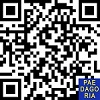INQUENCING-BASED LEARNING POTENTIAL TO PRACTICE METACOGNITIVE SKILLS
Abstract
Abstrak: Tujuan penelitian ini adalah mengkaji potensi PBI untuk melatih keterampilan metakognitif siswa SMA. Sebanyak 63 siswa SMA menjadi sample dalam penelitian eksperimen ini. 30 siswa berada pada kelas eksperimen. 33 siswa berada di kelas control. Siswa diukur metakognitifnya menggunakan tes uraian berjumlah sembilan item. Data perbedaan metakognitif siswa dihitung menggunakan Mann-Whitney tes. Hasil analisis diperoleh bahwa metakognitif siswa di awal ada sama (sig. > 0.05). Hasil analisis metakognitif akhir mengungkap bahwa metakognitif siswa kelas eksperimen dan control adalah berbeda (sig.<0.05). Penelitian ini menyimpulkan bahwa perbedaan keterampilan metakognitif siswa disebabkan oleh perbedaan pembelajaran yang digunakan. Siswa terlatih lebih baik metakognitifnya dengan pembelajaran inkuiri dibanding siswa di bukan pembelajaran inkuiri. Riset ini merekomendasikan bahwa guru dapat menggunakan pembelajaran inkuiri untuk memperbaiki keterampilan metakognitif siswanya.
Abstract: The aimed of this article was to explore the potential of IBL to train high school students' metacognitive skills. A total of 63 high school students were sampled in this experimental study. Thirty students were in the experimental group, and thirty-three students were in the control group. Students were measured metacognitive using an essay test totaling nine items. Data on students' metacognitive differences were calculated using the Mann-Whitney assess. The finding of the analysis showed that the students' metacognitive values at the beginning were equal (sig.>0.05). The final metacognitive analysis results revealed that the students metacognitive of the experimental and control classes were different (sig.<0.05). This study concluded that differences in students' metacognitive skills were caused by differences in the learning used. Students with trained inquiry learning have better metacognitive skills than students in non-inquiry learning. This research recommends that teachers use inquiry learning to improve their students' metacognitive skills.Keywords
Full Text:
DOWNLOAD [PDF]References
Adita, E. R., & Azizah, U. (2016). Student Metacognitive Skills Through The Implementation Of Guided Inquiry Learning Models On Subject Matter of The Rate of Reaction in SMA 1Manyar Gresik XI Grade. UNESA Journal of Chemical Education, 5(1), 143–151.
Adnan, & Bahri, A. (2018). Beyond effective teaching: Enhancing students’ metacognitive skill through guided inquiry. Journal of Physics: Conference Series, 954(1), 12022.
Ambarsari, W., Santosa, S., & Maridi, M. (2013). Penerapan Pembelajaran Inkuiri Terbimbing terhadap Keterampilan Proses Sains Dasar pada Pelajaran Biologi Siswa Kelas VIII SMP Negeri 7 Surakarta. Jurnal Pendidikan Biologi, 5(1), 81–95.
Amin, A. M., Corebima, A. D., Zubaidah, S., & Mahanal, S. (2020). The correlation between metacognitive skills and critical thinking skills at the implementation of four different learning strategies in animal physiology lectures. European Journal of Educational Research, 9(1), 143–163.
Ardila, C., Corebima, A. D., & Zubaidah, S. (2013). Hubungan keterampilan metakognitif terhadap hasil belajar biologi dan retensi siswa kelas x dengan penerapan strategi pemberdayaan berpikir melalui pertanyaan (pbmp) di sman 9 malang. Online Journal of the State University of Malang, Indonesia.
Baransano, A. Y., Yohanita, A. M., & Damopolii, I. (2017). Penerapan Model Pembelajaran Picture and Picture untuk Meningkatkan Hasil Belajar Biologi Siswa Kelas XI IPA SMA YABT Manokwari. Prosiding Seminar Nasional MIPA II Universitas Papua Tahun 2017, 273–280. Jakarta: Sinar Grafika.
Chen, S., Huang, C.-C., & Chou, T.-L. (2016). The effect of metacognitive scaffolds on low achievers’ laboratory learning. International Journal of Science and Mathematics Education, 14(2), 281–296.
Corebima, A. D. (2009). Metacognitive skill measurement integrated in achievement test. Retrieved from http://ftp.recsam.edu.my/cosmed/cosmed09/AbstractsFullPapers2009/Abstract/Science Parallel PDF/Full Paper/01.pdf
Damopolii, I., Keley, U., Rianjani, D. T., Nunaki, J. H., Nusantari, E., & Kandowangko, N. Y. (2020). Potential of Inquiry-Based Learning to Train Student’s Metacognitive and Science Process Skill. Jurnal Ilmiah Peuradeun, 8(1), 83–98.
Hogan, M. J., Dwyer, C. P., Harney, O. M., Noone, C., & Conway, R. J. (2015). Metacognitive skill development and applied systems science: A framework of metacognitive skills, self-regulatory functions and real-world applications. In Metacognition: Fundaments, applications, and trends (pp. 75–106). Springer.
Lawshe, C. H. (1975). A quantitative approach to content validity 1. Personnel Psychology, 28(4), 563–575.
Mu’minin, S. K. F., & Azizah, U. (2014). Student Metacognitive Skill Through Inquiry Learning Models In Acid Base Matter In SMAN 1 Pacet XI Grade. UNESA Journal of Chemical Education, 3(2), 67–74.
Nasir, N. I. R. F., Damopolii, I., & Nunaki, J. H. (2020). Pengaruh Pembelajaran Inkuiri terhadap Level Berpikir Siswa SMA. Bioilmi: Jurnal Pendidikan, 6(2), 112–119.
Nunaki, J. H., Damopolii, I., Kandowangko, N. Y., & Nusantari, E. (2019). The Effectiveness of Inquiry-based Learning to Train The Students’ Metacognitive Skills Based on Gender Differences. International Journal of Instruction, 12(2), 505–516.
Nunaki, J. H., Damopolii, I., Nusantari, E., & Kandowangko, N. Y. (2019). The contribution of metacognitive in the inquiry-based learning to students’ thinking skill based on SOLO Taxonomy. Journal of Physics: Conference Series, 1321(3), 32044.
Polit, D. F., Beck, T., & Owen, S. V. (2007). Focus on research methods is the CVI an acceptable indicator of content validity. Res Nurs Health, 30, 459–467.
Schuster, C., Stebner, F., Leutner, D., & Wirth, J. (2020). Transfer of metacognitive skills in self-regulated learning: an experimental training study. Metacognition and Learning, 15(3), 455–477.
Siregar, S. (2013). Pengaruh Model Pembelajaran Inkuiri Berbasis Media Animasi Terhadap Pemahaman Konsep, Sikap Ilmiah dan Assesmen Kinerja Siswa Pada Konsep Sintesis Protein. Jurnal EduBio Tropika, 1(2).
Susilawati, S., & Sridana, N. (2015). Pengaruh model pembelajaran inkuiri terbimbing terhadap keterampilan proses sains siswa. Biota, 8(1), 27–36.
Warouw, Z. W. M. (2010). Pembelajaran Reciprocal Teaching dan Metakognitif (RTM) yang memberdayakan keterampilan metakognitif dan hasil belajar biologi siswa SMP. Jurnal Ilmu Pendidikan, 17(2).
Yasir, M., Fikriyah, A., Qomaria, N., Tanzih, A., & Haq, A. (2020). Metacognitive skill on students of science education study program : Evaluation from answering biological questions. JPBI (Jurnal Pendidikan Biologi Indonesia), 6(1), 157–164.
Zohar, A., & Barzilai, S. (2013). A review of research on metacognition in science education: Current and future directions. Studies in Science Education, 49(2), 121–169.
DOI: https://doi.org/10.31764/paedagoria.v12i1.3890
Refbacks
- There are currently no refbacks.
Copyright (c) 2021 Andik Andriyanto, Jan Hendriek Nunaki, Insar Damopolii

This work is licensed under a Creative Commons Attribution-ShareAlike 4.0 International License.
Paedagoria : Jurnal Kajian, Penelitian dan Pengembangan Kependidikan
Fakultas Keguruan & Ilmu Pendidikan | Universitas Muhammadiyah Mataram.
_______________________________________________
 | Paedagoria : Jurnal Kajian, Penelitian dan Pengembangan Kependidikan |
______________________________________________
CURRENT INDEXING:
EDITORIAL OFFICE:

















